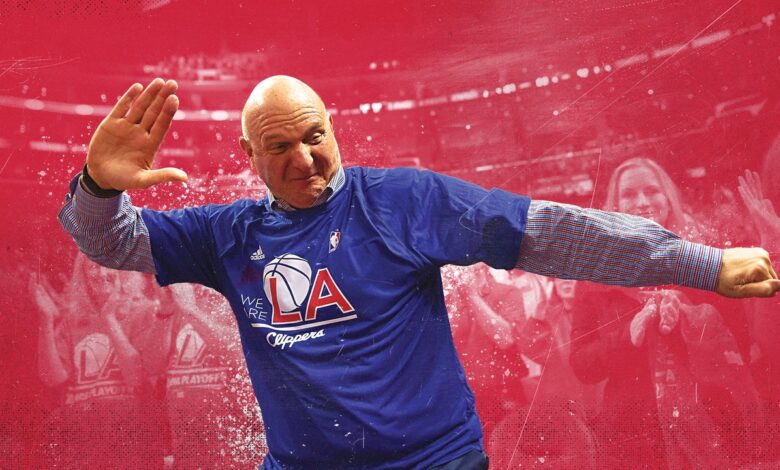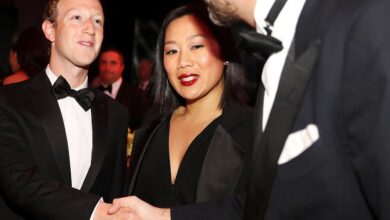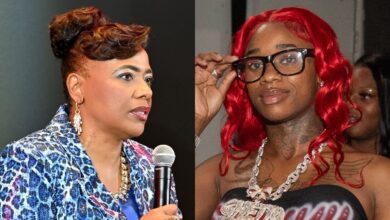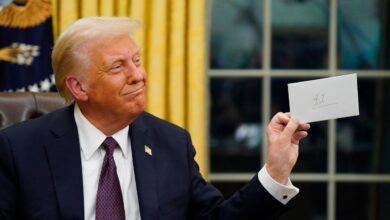Steve Ballmer chases NBA glory at the Intuit Dome, the LA Clippers’ dazzling new home

Ballmer’s tenure as CEO of Microsoft, a job he took on in 2000 after Gates moved into the role of chief technology officer, has received mixed reviews. (“Microsoft’s Lost Decade” was the headline of a 2012 article Vanity Fair (The article in which insiders criticized Ballmer.) The company’s revenue and profits both soared under his watch, but its stock price stagnated as Microsoft was overtaken by rivals in emerging areas like mobile and search. In one of his most infamous moments as CEO, he mocked the commercial viability of a newly launched product called the iPhone, dismissing it as too expensive. He now admits that those comments will be etched on his “tech tombstone.”
“I definitely missed some things. Between Bill and I, we weren’t serious enough about the phone in the right way. That’s what I mean. [we missed]. You could say search, but that’s outside of our scope. The concept of an appliance—that’s more within our scope,” Ballmer said. “That was definitely a mistake.”
Gates and the late Paul Allen—who owned the Portland Trail Blazers and Seattle Seahawks—are officially credited as the company’s founders. But there’s no doubt that Ballmer, who joined in 1980, played a central role in turning the company into a powerhouse. “Bill founded Microsoft,” he says. “I feel like the second founder.” Ballmer helped broker a deal to bring Windows to IBM PCs, a key event in Microsoft’s growth, and he professionalized the company by shaking up its staff when he arrived. “I didn’t like the staff we had,” he says. “We cleaned it up. We added people. We adjusted the culture, adjusted the people.”
Microsoft’s stock has soared recently under Ballmer’s successor, Satya Nadella, buoyed by the company’s strong performance in cloud services and its support of OpenAI. Ballmer is very proud of Nadella and has not been shy about declaring a W in the company’s succession plan. “We had the right person,” he said. “Nobody ever doubted it, but it was someone I identified within a year or so of him joining the company. I moved him around.” [through] three times the job to keep giving him different experiences. I mean, it’s all him, but what can I do? I give him experiences.”
The relationship between Ballmer and Gates, as it stands today, is complicated. Ballmer was the best man at Gates’ wedding, although the two are no longer in regular contact, with Ballmer saying it was “probably a couple of years ago” when they last spoke. “They’re two very different people,” Lucovsky said of Ballmer and Gates. “They work together at Microsoft because they need each other…. They don’t need each other anymore.”
But Ballmer, who admits to being “a shameless Microsoft supporter,” still keeps an eye on what’s going on at the company—and traditional rivals like Apple, which seem to be lagging behind on AI. “Apple is pretty pragmatic. They’re taking technology that other people have built and embedding it in ways that seem pretty clever, and [that’s] Ballmer said of the company’s June announcement of a partnership with OpenAI that would bring ChatGPT features to its devices: “What should they do?”
“Microsoft, like Apple, is integrating these technologies into our products,” he said, noting that Microsoft “has more products and scenarios because of the Office applications.” He also noted that Microsoft attracts developers because of its cloud platform and has a stronger relationship with OpenAI, “allowing both of us to try to serve consumers with these technologies on the open internet.”
Unlike Gates, who sold off a large portion of his company, Ballmer has retained a majority stake. And so it’s no surprise that Ballmer is extremely bullish on AI, and Microsoft’s prospects in the AI arms race in particular. “I think Microsoft is in a unique position,” Ballmer said, his voice cracking like a pirate’s. “I think they’re fantastic. What they have behind them: fantastic. Their willingness to spend money on capital and R&D: fantastic, fantastic.”
At this point, I felt like I was listening to the old Ballmer, who used to motivate Microsoft employees with passionate speeches. But in reality, I probably sounded more like a proud father. “Clippers, Microsoft, and my kids,” Ballmer said. “That’s what I have for babies.”
And he said the Intuit Dome “will outlive me by a lot.”
“People may not know I was involved in this, but people will know about Intuit Dome for a long time,” he added.




